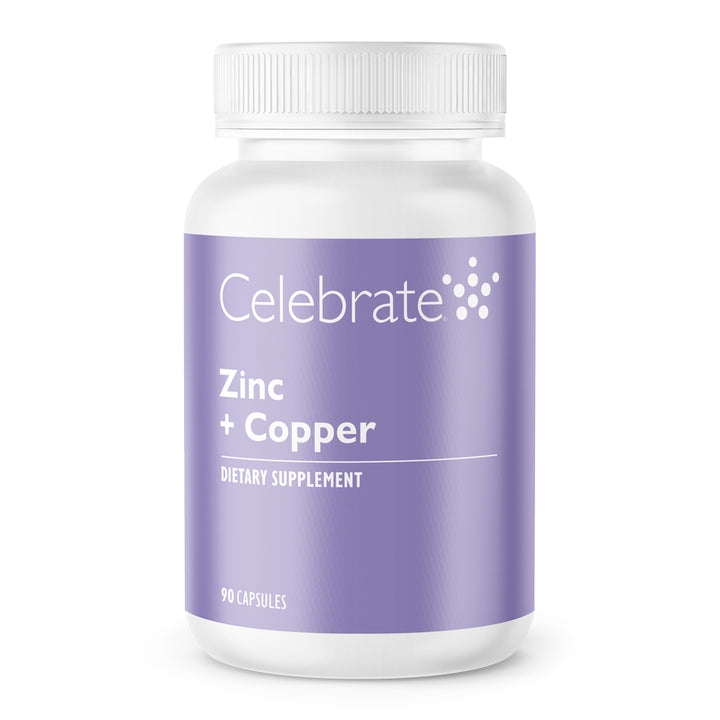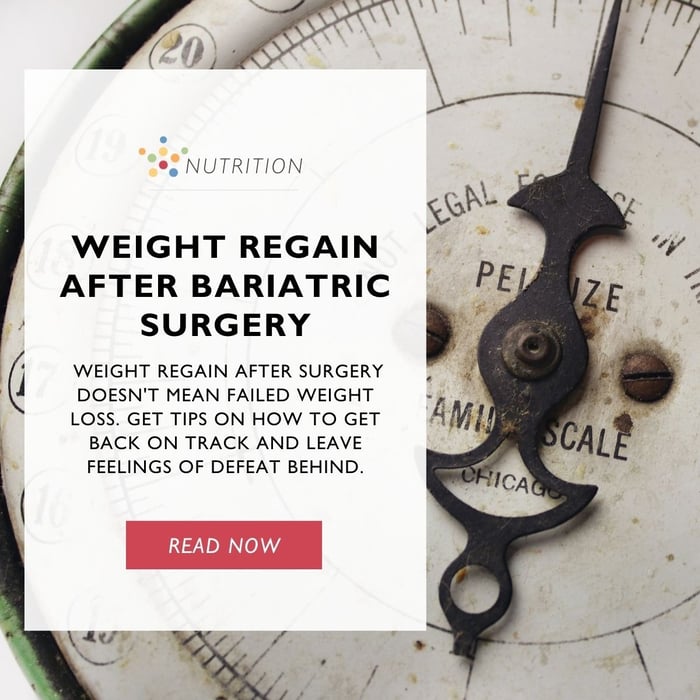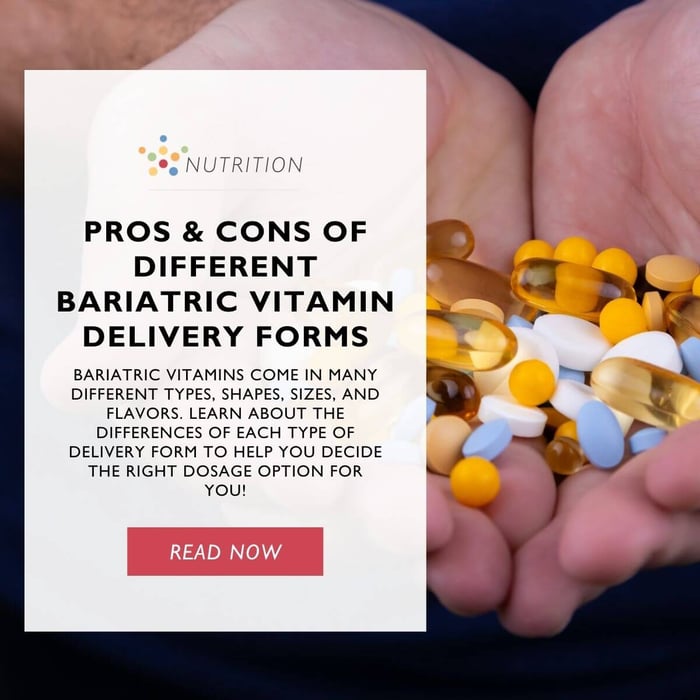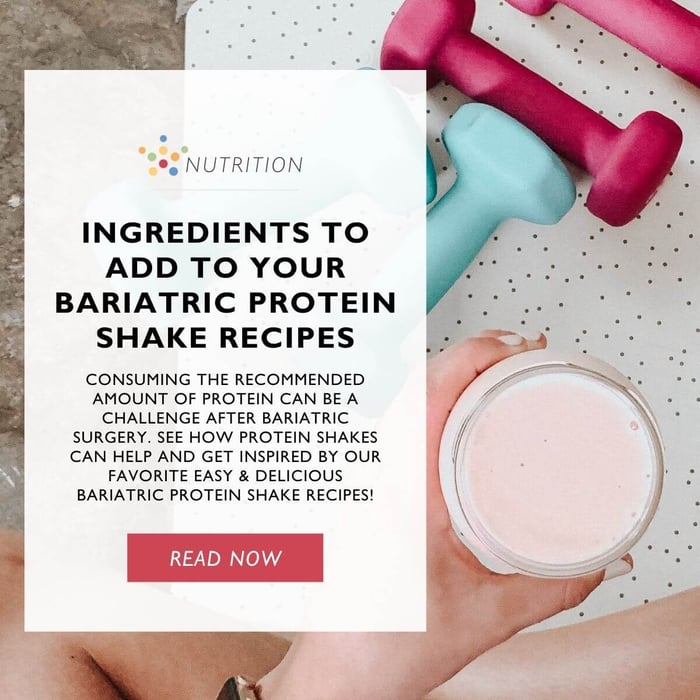Zinc and Copper Deficiency After Bariatric Surgery
 Taylor Brodie, MS, RDN, LD
Lifestyle
Taylor Brodie, MS, RDN, LD
Lifestyle
April 19th, 2023
 Oysters are an excellent source of Zinc and Copper
Oysters are an excellent source of Zinc and Copper
Zinc
Clinically, zinc is most known as a major player in wound healing and immunity.3,4 The development and function of immune mediating cells like neutrophils, macrophages, and lymphocytes are dependent on adequate zinc.4,5 Furthermore, antimicrobial pathways weaken pathogens by either extracting free zinc (an energy source) away from them or over-saturating the microbe with excessive zinc.5 However, zinc also has pivotal roles in basic cellular functions such as DNA synthesis, cellular division and growth.3,4,6,7 Zinc is also used as a transcription factor for gene expression, to synthesize and stabilize proteins, and is crucial element in the antioxidant superoxide dismutase 1 (SOD1).3 These fundamental cellular functions are dependent on the bioavailability of zinc, therefore, even small changes can cause significant differences in cellular function.2 However, storage is neither steady nor easy to measure.2,6
Excess weight has been associated with low zinc concentrations in plasma and erythrocytes. There is a hypothesis that zinc is sequestered in the adipose tissue.8 After RNY, individuals have shown to have improved zinc erythrocytes and declining urine zinc concentrations.8 Even though weight loss may improve zinc utilization, using MBS as the mechanism of initiating this weight loss comes with risk of altering intake and absorption, ultimately increasing risk of deficiency after bariatric surgery.
Zinc Deficiency After Bariatric Surgery
The prevalence of zinc deficiency after bariatric surgery seems to vary, with surgery type and protein intake explaining over 20% of the variance between those with and without deficiency.2 Biliopancreatic diversion with Duodenal Switch is the surgery type most associated with deficiency, with one study showing 92% of these patients had deficiency 12 months after bariatric surgery.2 Roux-en-Y gastric bypass, which is also associated with higher deficiency rates7 shown a 12-month post-op deficiency rate of 43% in one retrospective study, while long-term observations have seen much lower, 26%, after 5 years.9 Even with proper supplementation, deficiency can occur.10 This has been the case for between 8-26% of individuals after RNY.9
Symptomatic deficiency is rare,4 usually resulting in signs and symptoms like diarrhea, lethargy, hair loss, alopecia, dermatitis, glossitis, taste alterations, and poor wound healing.4,6,7 Mahawar and colleagues argue that this rarity along with easy of diagnosis and treatment suggest routine screening is unnecessary.4 Yet biochemical lab indicators like plasma, erythrocyte, and urine help paint a broad picture of zinc utilization, and typically inform the higher deficiency rates mentioned above. These measures are not perfect though, as obesity-induced inflammation may alter their results.11 Depleted zinc pools that have not yet presented in clinical signs and symptoms may continue to alter crucial cellular functions.
The ASMBS recommends that patients who have had a RNY or BPD/DS be screened for serum or plasma zinc annually.10 Screening may be especially crucial for at risk patients with excessive alcohol intake, protein-energy malnutrition, sickle cell anemia, or vegetarians.3,7 To decrease risk and unfavorable side effects of zinc deficiency after bariatric surgery, dietitians and patients should work together to optimize zinc intake, digestion, absorption, and supplement adherence.
 Red meat is a great source of zinc and protein
Red meat is a great source of zinc and protein
Zinc Digestion and Absorption
Decreased stomach acid and bypassing zinc’s absorption sites are contributing factors that influence zinc bioavailability. Zinc is rarely found in free form, but rather attached to amino acids or nucleic acids.7 An acidic environments supplied by HCl in the stomach allows proteases and nucleases to separate zinc from these components.7 Therefore, lower gastric acid production after surgery is one barrier to absorption after bariatric surgery.2 Under normal circumstances, zinc is absorbed in the duodenum and proximal jejunum, but this is bypassed after malabsorptive procedures.4,7,10 It Is hypothesized that transport mediated colonic absorption occurs as well, but only during deficiency.2
In addition to Zinc’s own feedback system for controlling absorption, nutrient interactions can alter zinc absorption by binding to the mineral, competing for transporters, and increasing excretion. Grains, vegetables, and other plant foods typically are high in phytates that bind to zinc and make complexes that are unable to be absorbed.2,6,7 Animal-based foods are not only higher in zinc,2 but have a greater bioavailability.4,6,7 These foods are emphasized in the post-bariatric surgery diet due to their high protein, iron, and zinc content.
Protein malnutrition has been suggested to play a role in zinc concentrations, since a relationship between zinc and prealbumin concentrations have been observed.2 However, prealbumin is a poor indicator of nutrition status and protein intake is not independently correlated with zinc status.2 It is well known that iron and zinc compete for absorption, but this may be mitigated if a zinc to iron ratio is 2:1 or greater.7,13,14 The ratio between zinc and copper intake must also be balanced to avoid risk of copper deficiency. The ASMBS recommends 8-11mg of zinc for every 1mg of copper.10
Zinc Supplementation
Despite factors suggesting inferior absorption of zinc after surgery, supplementation have shown to be incredibly useful for prevention and treatment of deficiency after bariatric surgery. Despite the hypothesis that common supplement ingredients (milk casein, soy protein, starch, hydrated silica, magnesium stearate) minimize zinc absorption,12 oral supplementation has shown a net gain in patient outcomes. ASMBS recommends between 100-200% RDA for Zinc be met in a bariatric multivitamin product daily. Supplementing with 200% of the RDA (22mg) of zinc have shown to result in significantly lower deficiency rates after gastric bypass compared to no or standard multivitamin supplements.4 Treating deficiency after bariatric surgery is most often successful with a few weeks of oral supplements, but intravenous treatment may be indicated.4
Each Bariatric Multivitamin by Celebrate follows ASMBS recommendations, including the proper ratio of 8-15mg of zinc per every 1 mg of copper. The balance of other mineral doses are always considered for each dose, supporting not just zinc utilization but copper, iron, and magnesium as well.
Zinc forms are continuing to be investigated for optimal absorption and bioavailability. Zinc chelates are found amongst most of the Celebrate product line. Bisglycinate is utilized in our foundational bariatric multivitamins, including CelebrateONE Bariatric One A Day Multivitamin Capsules, the Multi-Complete Bariatric Multivitamin with Iron product line, our Bariatric Prenatal Multivitamin, and our Multi-Well Multivitamin.
For individuals that require zinc repletion, a therapeutic product that combines 25mg of zinc bisglycinate chelate and 2mg of copper bisglycinate chelate is available in our Zinc with Copper Supplement capsules.
 Almonds and cashews are high in copper, fiber, protein, and healthy fats
Almonds and cashews are high in copper, fiber, protein, and healthy fats
Copper
Proper copper status is of great importance after bariatric surgery because of the critical roles of copper-dependent enzymes, antioxidants, and ferroxidases. Copper is a cofactor for enzymes involved in cellular respiration, mitochondrial homeostasis, collagen synthesis, and nervous system function.1,9,11,17 Copper homeostasis is of great importance because too much can result in undesirable cellular and clinical outcomes.17 To manage this, copper excretion is managed through the liver and GI tract.17
Copper homeostasis is managed by multiple factors, many of which can influence the validity of biochemical measures used for deficiency diagnosis. Firstly, inflammation which releases cytokines and interleukins may promote an immune response that includes increased release of ceruloplasmin in the plasma.17 Obesity-related inflammation may misrepresent the level of copper available for use in the blood or through ceruloplasmin.11 Furthermore, individuals with excess weight have shown to have greater amounts of copper in liver and adipose tissue.1 The relationship between elevated copper with rising insulin and leptin suggest that deficiency may exacerbate obesity-related complications and comorbidities.1 Estrogen levels, infection, and digestive secretions can also alter plasma copper homeostasis and should be considered when evaluating lab results.7,19
Overall, serum copper and ceruloplasmin are the labs recommended to screen and diagnose deficiency after bariatric surgery due to their correlation with clinical symptoms.10 These include anemia that is not responsive to other treatments, ataxia, numbness in hands and feet, and poor wound healing.7,11 Continued deficiency without treatment, can lead to hypercholesterolemia, osteoporosis, and increased risk of infection.19 While rare among the general public,19 copper deficiency has been seen in between 4 and 18% of individuals who’ve had bariatric surgery.9,11 More specifically, deficiency is more common after RNY and BPD/DS due to bypassing of the major absorption sites and inadequate supplementation to account for it.17,18
Digestion and Absorption
Dietary copper is typically found in the cupric (Cu2+) form bound to other substances. In the stomach, pepsin and HCl free the bound copper while enzymes do the same in the small intestine.7 The majority of this absorption occurs in the proximal jejunum, with the stomach and ileum also playing supportive roles.7,17,18 Various interactions with other food components can enhance or inhibit copper absorption.
The regulation of copper uptake into the cell is strongly controlled. Copper and zinc intake are two of the major regulatory factors influencing the minerals intake into the cell for functional use. Copper intake is inversely associated with absorption rate, ensuring that the most copper is available for functional use even when intake is low.
In contrast, other mechanisms are put in place to avoid copper saturating carriers and leading to excess copper in the cell. High doses of zinc can also lead to copper deficiency.18 Inadequate copper can reduce the availability of ceruloplasmin to create ferric iron for use; therefore, copper deficiency is also a risk factor for iron deficiency and anemia.7,20,21
Copper Supplementation
Copper supplementation has shown to be very effective at preventing copper deficiency.9 Individuals can quickly replete copper levels by saturating the transport system.18 However, repleting deficiency secondary to excess zinc may take more time.7 This is why the ratio of 8-11mg of zinc per every 1 mg of copper, as recommended by the ASMBS, is so crucial in prophylactic supplementation.10 If individuals are not responsive to oral repletion, IV supplements may be necessary in severe cases.11
Excess copper intake, greater than the 10mg UL, is rare usually only seen in accidental ingestion of contaminated water.7,19 Gastrointestinal symptoms, weakness, and anorexia can occur with short-term intake greater than the UL, but if continued long-term, it can result in liver and kidney damage.7,19 Individuals should take bariatric multivitamins as directed to avoid copper toxicity.
Resources
1. Banach W, Nitschke K, Krajewska N, et al. Molecular Sciences The Association between Excess Body Mass and Disturbances in Somatic Mineral Levels. Int J Mol Sci. 2020;2020:7306. doi:10.3390/ijms21197306
2. Sallé A, Demarsy D, Poirier AL, et al. Zinc deficiency: A frequent and underestimated complication after bariatric surgery. Obes Surg. 2010;20(12):1660-1670. doi:10.1007/s11695-010-0237-5
3. Higdon J, Drake VJ. An Evidence-Based Approach to Vitamins and Minerals. 2nd ed. Thieme; 2012.
4. Mahawar KK, Govil Bhasker A, Bindal V, et al. Zinc Deficiency after Gastric Bypass for Morbid Obesity: a Systematic Review. Obes Surg. doi:10.1007/s11695-016-2474-8
5. Zinc | Linus Pauling Institute | Oregon State University. Accessed July 26, 2022. https://lpi.oregonstate.edu/mic/minerals/zinc
6. Zinc - Health Professional Fact Sheet. Accessed July 26, 2022. https://ods.od.nih.gov/factsheets/Zinc-HealthProfessional/
7. Gropper SS, Smith JL, Carr TP. Advanced Nutrition and Human Metabolism. 7th Edition. (Gropper SS, Smith JL, Carr TP, eds.). Cengage Learning; 2018.
8. Pires LV, Martins LM, Geloneze B, et al. The Effect of Roux-en-Y Gastric Bypass on Zinc Nutritional Status. Obes Surg. 2007;17:617-621.
9. Ciobârcă D, Florinela Cătoi A, Copăescu C, Miere D, Cris G. Bariatric Surgery in Obesity: Effects on Gut Microbiota and Micronutrient Status. Nutrients. 2020;12(235):1-27. doi:10.3390/nu12010235
10. Mechanick JI, Apovian C, Brethauer S, et al. CLINICAL PRACTICE GUIDELINES FOR THE PERIOPERATIVE NUTRITION, METABOLIC, AND NONSURGICAL SUPPORT OF PATIENTS UNDERGOING BARIATRIC PROCEDURES - 2019 UPDATE: COSPONSORED BY AMERICAN ASSOCIATION OF CLINICAL ENDOCRINOLOGISTS/AMERICAN COLLEGE OF ENDOCRINOLOGY, THE OBESITY SOCIETY, AMERICAN SOCIETY FOR METABOLIC & BARIATRIC SURGERY, OBESITY MEDICINE ASSOCIATION, AND AMERICAN SOCIETY OF ANESTHESIOLOGISTS - EXECUTIVE SUMMARY. Endocr Pract. 2019;25(12):1346-1359. doi:10.4158/GL-2019-0406
11. Gletsu-Miller N, Wright BN. Mineral Malnutrition Following Bariatric Surgery 1,2. 2013;4:506-517. doi:10.3945/an.113.004341
12. Gandia P, Bour D, Maurette JM, et al. A bioavailability study comparing two oral formulations containing zinc (Zn bis-glycinate vs. Zn gluconate) after a single administration to twelve healthy female volunteers. International Journal for Vitamin and Nutrition Research. 2007;77(4):243-248. doi:10.1024/0300-9831.77.4.243
13. Pérès JM, Bureau F, Neuville D, Arhan P, Bouglé D. Inhibition of zinc absorption by iron depends on their ratio [Abstract]. Journal of Trace Elements in Medicine and Biology. 2001;15(4):237-241. doi:10.1016/S0946-672X(01)80039-0
14. Ciangura C, Coupaye M, Deruelle P, et al. Clinical Practice Guidelines for Childbearing Female Candidates for Bariatric Surgery, Pregnancy, and Post-partum Management After Bariatric Surgery. Obes Surg. Published online 2019. doi:10.1007/s11695-019-04093-y
15. DiSilvestro RA, Swan M. Comparison of Four Commercially Available Zinc Supplements for Performance in a Zinc Tolerance Test [Abstract]. The FASEB Journal. 2008;22(S1):693.3-693.3. doi:10.1096/FASEBJ.22.1_SUPPLEMENT.693.3
16. DiSilvestro RA, Koch E, Rakes L. Moderately High Dose Zinc Gluconate or Zinc Glycinate: Effects on Plasma Zinc and Erythrocyte Superoxide Dismutase Activities in Young Adult Women [Abstract]. Biological Trace Element Research 2015 168:1. 2015;168(1):11-14. doi:10.1007/S12011-015-0334-3
17. Tapiero H, Townsend DM, Tew KD. Trace Elements in Human Physiology and Pathology. Copper.
18. Chen M, Krishnamurthy A, Mohamed AR, Green R. Hematological disorders following gastric bypass surgery: Emerging concepts of the interplay between nutritional deficiency and inflammation. Biomed Res Int. 2013;2013. doi:10.1155/2013/205467
19. National Institute of Health Office of Dietary Supplements. Copper - Fact Sheet for Health Professionals. Published March 29, 2021. Accessed July 24, 2022. https://ods.od.nih.gov/factsheets/Copper-HealthProfessional/
20. Weight Management Dietetic Practice Group. Pocket Guide to Bariatric Surgery. Third Edition. (Isom KA, Majumdar MC, eds.).; 2022.
21. Braunstein EM. Etiology of Anemia. Merck Manual Professional Version. Published September 2020. Accessed June 1, 2022. https://www.merckmanuals.com/professional/hematology-and-oncology/approach-to-the-patient-with-anemia/etiology-of-anemia
Zinc Plus Copper Capsule

$10.99
Zinc Plus Copper is a powerful supplement that provides essential minerals to support optimal health. With the combination of 25 mg of zinc and 2 mg of copper, this zinc copper supplement provides a therapeutic dose that maintains the critical… read more



